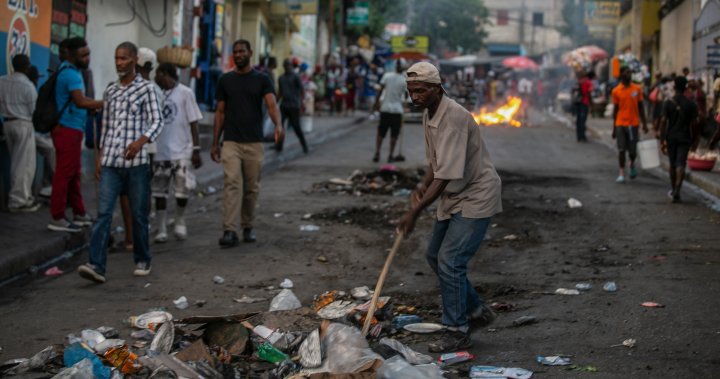
What’s happening in Haiti? Multiple crises prompt calls for Canada’s help
Global News
Last month, daily life in Haiti began to spin out of control in the nation due to multiple crises, including fuel blockades and a cholera outbreak.
Civil unrest is growing in Haiti as the government seeks international help to crack down on gang violence and alleviate a worsening humanitarian crisis.
The Caribbean nation has made international headlines since the 2021 assassination of former president, Jovenel Moise. But last month, daily life began to spin out of control in the nation due to multiple crises, including fuel blockades and a cholera outbreak.
The Haitian government has turned to Canada and other nations for help. Here’s how Haiti got here, and what’s happening now.
Haiti’s political instability has simmered since last year’s slaying of Moise, who had faced opposition protests calling for his resignation over corruption charges and claims that his five-year term had ended. He dissolved the majority of parliament in January 2020 after failing to hold legislative elections in 2019 amid political gridlock.
With global inflation soaring this year due to several factors, including Russia’s war in Ukraine, Haiti has been hit hard. Last month, Prime Minister Ariel Henry announced the end to fuel subsidies, causing prices to double.
As a result, a coalition of gangs, which have a significant presence in the country, blocked the entrance to a major fuel terminal, leading to fuel shortages in what UN officials said last week was a reason why more than four million Haitians are facing acute food insecurity.
Hospitals have cut services and businesses, including banks and grocery stores, have reduced their hours as the country runs out of fuel.
Clean water is also scarce, leading to a worsening cholera outbreak that has left hundreds hospitalized and dozens dead. Haiti’s last cholera outbreak was in 2010 as a result of United Nations peacekeepers introducing the bacteria into the country’s largest river by sewage. Nearly 10,000 people died and more than 850,000 were sickened.





















 Run 3 Space | Play Space Running Game
Run 3 Space | Play Space Running Game Traffic Jam 3D | Online Racing Game
Traffic Jam 3D | Online Racing Game Duck Hunt | Play Old Classic Game
Duck Hunt | Play Old Classic Game











